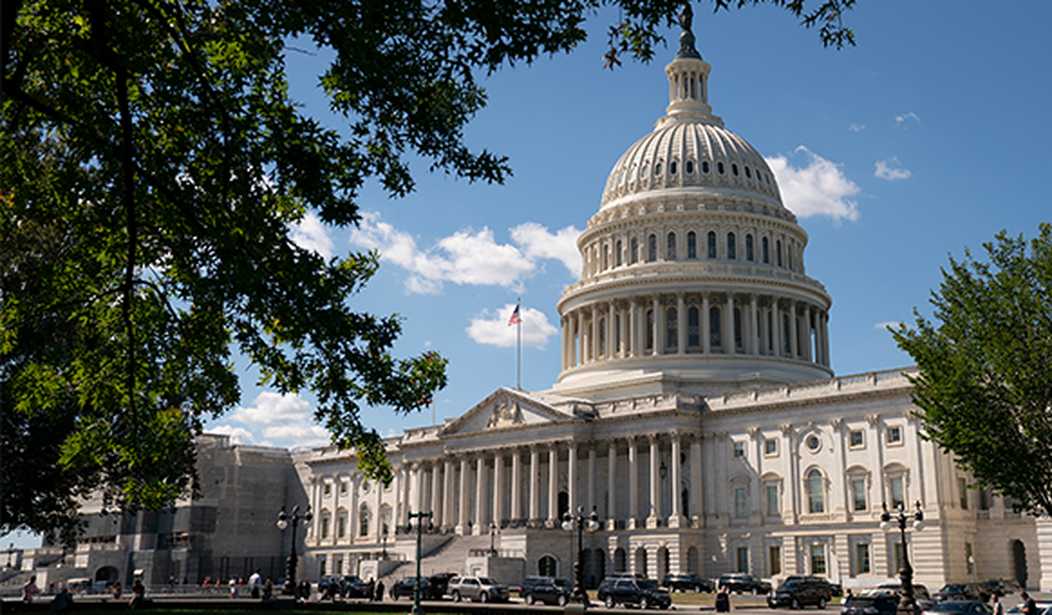One thing you can always count on is politicians trying to address a perceived issue with a heavy-handed big government “solution.” Rather than looking at ways to expand consumer financial services to those who need it most, some on Capitol Hill are now trying to score political points at the expense of those living paycheck to paycheck. In other words, the intended beneficiaries of the proposed legislation will instead be its unintended victims.
Rep. Glenn Grothman (R-Wis.) and Rep. Jesus Garcia (D-Ill.) recently introduced legislation that would institute a 36-percent-interest-rate cap on various types of payday loans. The bill titled the “Veterans and Consumers Fair Credit Act” would mandate that the 36-percent-interest-rate cap applies to all consumers, not just active-duty military personnel and their families as the “Military Lending Act” requires.
The bill, however, fails to consider that arbitrary interest-rate caps oftentimes hurt, as studies show, the most at-risk veterans and consumers who struggle to get approved for short-term loans because they have a less-than-stellar credit score.
“Researchers, journalists, and policymakers routinely demonize the businesses that provide payday loans, calling them predatory or worse,” says Lisa J. Servon, a professor and former dean at the Milano School of International Affairs, Management and Urban Policy at the New School.
“Indeed, if you are not living close to the edge, it’s hard to understand why a person would pay such a high price to borrow such a small amount of money.” On the other hand, if you are living close to the edge, you understand it very well.
The truth is that small-dollar loans with varying interest rates help buy time for those with bad credit who’ve been turned away by larger consumer lenders for prime loans. As Servon says, “[M]ainstream financial services have all but abandoned low- and moderate-income groups.”
Recommended
Americans, it turns out, have a more difficult time securing credit than one might guess. Some consumers are completely unable to access traditional credit markets while a separate group of consumers, though they can get approved for some credit, still struggle to cover their expenses.
“When credit-constraining outcomes of those in the formal credit economy are explicitly taken into account, it is as if a total of 23.8%, or about 60.4 million U.S. adults, lack access to credit at choice,” reads a report from the New York Federal Reserve.
Moreover, government researchers in a 2017 study of soldiers and their relationship with payday lenders discovered that many of the negative stereotypes surrounding small-dollar lenders simply aren’t supported by the facts.
The study instead reveals the opposite—that, for enlisted men and women without a high-school diploma, “payday loan access reduces the likelihood of separating [from the Army] voluntarily by 2 percentage points.”
Furthermore, researchers found that payday loans—even when available to more at-risk groups of enlisted Army personnel—benefitted soldiers and helped them out of difficult financial situations.
It follows, then, that tightening the rules on payday lenders will only serve to limit consumer choice for the millions of Americans who have no other way of making ends meet one paycheck to the next.
Azlinah Tambu, a then-22-year-old single mother, years ago borrowed from five different small-dollar lenders so she could afford a repair on her car, which she needed to drop her daughter off at daycare and get to and from her job.
“I knew what a payday loan was,” she tells the New Yorker. “But I’m on a month-to-month lease, and it was either get evicted or take out the loans,” she said. “The reason I’m working so hard to pay these loans back is that I want to be in good standing, in case I ever need another one.”
When payday lenders are a person’s last resort, it’s bad policy to regulate small-dollar lenders out of business and force people who desperately need money into unregulated, off-the-book options. Rather than legislating restrictions on accessing credit by those with poor ratings, Congress should be looking at ways to expand credit offers to them by allowing more lenders to compete for their business.
House Financial Services Committee Chairwoman Rep. Maxine Waters, instead of pushing her anti-consumer leftwing regulation agenda, should acknowledge the important role small-dollar lending has on Americans’ bottom line.
Colin Hanna, a veteran, is president of Let Freedom Ring, a nonprofit public policy organization dedicated to promoting constitutional government, free enterprise, and traditional values.

























Join the conversation as a VIP Member